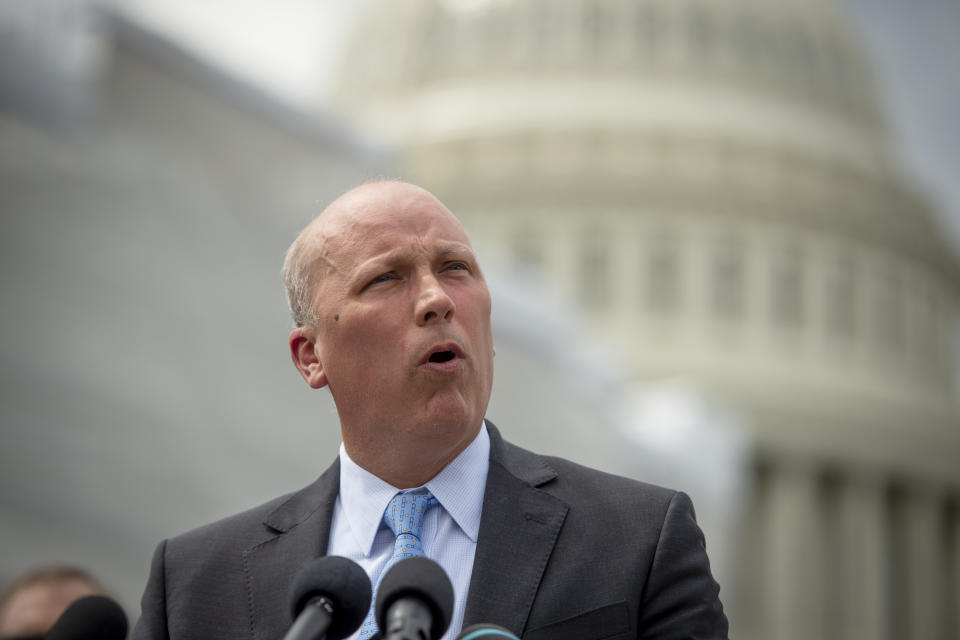Lawmakers try to change Paycheck Protection Program to give businesses flexibility
Lawmakers in Washington are attempting to rework the Paycheck Protection Program to give businesses more flexibility and more time to spend the loans.
The prospect of forgivable loans to keep small businesses afloat was extremely popular at first—but now some business owners say the rules are too restrictive.
The House is expected to vote next week on a bipartisan bill to rework the program. The bill, introduced by Rep. Chip Roy (R-TX) and Rep. Dean Phillips (D-MN), would give businesses 24 weeks to spend the loan instead of eight weeks. The legislation would make several other changes, including eliminating the requirement that businesses spend no more than 25% of the loan on non-payroll expenses.
So far, the Small Business Administration has approved more than $512 billion in PPP loans. For some of the businesses that received the earliest loans, the eight-week period begins expiring in June. If changes aren’t made, some businesses —largely restaurants and hotels—worry they could be left with the debt.
In an interview with Yahoo Finance, Roy said he constantly hears from business owners who have been approved for a loan, but are nervous about using it.
“They'll go, ‘I can't get my business model to work cause I can't hire people back and now I'm worried I'm not going to get the loan forgiven —so I don't know that I can take the risk to take the loan’,” said Roy.
A National Federation of Independent Business survey released this week showed nearly half of small businesses surveyed said it will be difficult to spend the money in an 8-week period and return to pre-crisis headcount.
PPP “was restricted in how useful it could be because there were so many constraints placed on it,” said Roy.

While acknowledging there were some issues in the legislation itself, Roy told Yahoo Finance he wished the Treasury Department and the SBA would have listened to the concerns about the non-payroll costs limit.
“I mean, they kind of implemented the 75%, 25% rule —which was arbitrary,” said Roy. “The goal is to encourage rehiring. Don't use the dollars for frivolous matters, but guess what? These small businesses, they're dying to restart, right? They want to hire workers. They're trying to, but they also have high rent, high mortgage payments that are a big chunk of their overall monthly payments and we don't want to discourage them from believing they can get through the other end of this.”
Roy argues some business owners are struggling to rehire workers because of the enhanced unemployment insurance included in the CARES Act — and he opposes extending the extra $600 a week, as outlined in the Heroes Act.
“That's a no go. That'd be no good for businesses. So we gotta make sure that we try to do what's important to get these small businesses what they need,” said Roy.
Roy said he’s optimistic about the bill passing the House, but there will have to be negotiations with the Senate — where senators are working on a different proposal.
“That's what the deliberative process is all about. I just want us to recognize that they need more flexibility. There isn't a one-size-fits-all approach and let's move it through,” said Roy. “These businesses need flexibility ASAP.”
Sen. Marco Rubio (R-FL), Chairman of the Senate Small Business committee, has acknowledged there should be some changes to the program.
As economic impact of #COVID19 evolves #PPP needs adjustments
Working on passing following changes:
•Extend deadline to apply from June 30 to Dec 31
•Allow 16 weeks to use funds instead of 8
•Allow use of funds to buy PPE for workers & for other public health investments— Marco Rubio (@marcorubio) May 22, 2020
On Thursday, Rubio and several other senators were trying to quickly pass a more narrow bill to give businesses more time to spend the money —but the Senate left for Memorial Day recess without getting it done. In a tweet, Rubio said the bill would pass “overwhelmingly” if put up for a vote.
Jessica Smith is a reporter for Yahoo Finance based in Washington, D.C. Follow her on Twitter at @JessicaASmith8.
Read more:
Wyden pushes for unemployment benefits tied to unemployment rates amid coronavirus pandemic
New bill would give essential workers $25K for tuition, student loans
Senators want to let small businesses spend more PPP money on non-payroll expenses
Senators push for paycheck guarantee in next coronavirus response bill
Trump administration puts Amazon foreign sites on Notorious Market List

 Yahoo Finance
Yahoo Finance 